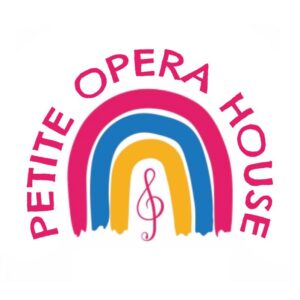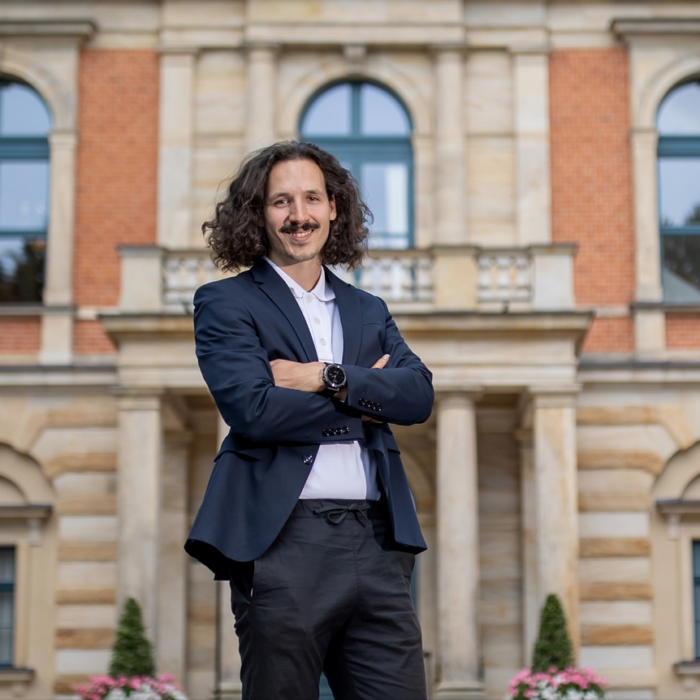
A Sit-Down with Petite Opera House and Their Educational Mission
By John VandevertMany of us so often forget that the famous names of the operatic arts were, at one point, children who developed a love of opera from their parents, childhood experiences, or some other early, personal connection to the artform. In our present society, helping children develop an interest in opera has never been tougher, thanks to the continued stratification of opera along rather arbitrary class lines. While musical accessibility is encouraged, at least for opera this is still quite a ways away from being truly accessible to everyone. Luckily, there are initiatives that are helping heal this ever growing problem. UK-based operatic educational company Petite Opera House is paving the way for a bright future for the next generation of opera lovers.
A young company, growing out of the pandemic, Petite Opera House was designed to empower parents in helping their children learn to love opera from a child-first perspective. This is a perspective that, instead of babying the children, works with them to help them cultivate their own interests in a way that is understandable, easy, and fun. I got the chance to sit down with two of Petite Opera House’s founders, Alexander Jeffries and Claire Breteaudeau, to talk about what led them to launch their initiative and the complexities of creating kid-friendly opera content.
Who and What is Petite Opera House?
It was clear right from the beginning that Alexander and Claire truly care for the enrichment of children. Not just because they are both parents and operatic professionals, but because they are operatic parents, who have benefited from the early exposure to opera. Speaking with passion, it was clear Petite Opera House was not a fun pastime but a mission. As Alexander explained, “It came from the three of us as parents realizing that there is nothing out there for children to make opera accessible. It’s the early days for us at the moment, but kids seem to really enjoy it. It’s about opening opera up to new generations.”
He went on to note that in the United Kingdom, as well as in many places in the United States, music education has been put on the chopping block. “Singing isn’t being taught in schools anymore,” he said, “[So] for us to come in and give parents the opportunity to teach their kids opera was the basic idea.” To give children the ability to relate to opera in a way that helps both parents and kids build a connection with the artform is both the company’s passion and its mission. Cost is always a concern. Claire noted, “We decided to do a price [that was] accessible, not expensive.”
Claire noted the basic components of Petite Opera House opera with effective—and clearly parental—clarity. The digital opera content must be short, have an emphasis on the important elements—story, main characters, and famous melodies—and include content to help children understand and retain information.
Alexander, saying the quiet part out loud concerning opera education for children, remarked, “Fundamentally, [our intention is] to just get it out there. Especially in the United Kingdom, opera is such an elitist art form at the moment. Opera funding is being cut like crazy, and education programs are usually the first things to go. Even if [the children] just watch one of our introductions, it is sparking passion. For most kids, they don’t hear opera until their teenage years.”
Path Towards Creation
Petite Opera House was only created two and a half years ago. A product of the pandemic lockdowns and appreciable gulf in help for home-bound families, Claire described for me the path from a good friendship to a blooming partnership. Her friendship with co-founder Claire Bretaudeau began during her search for a piano teacher. Shortly after, their parental status and mutual love of opera led them to launch Petite Opera House in 2021. Claire’s friend Alexander joined the team just last year. With a large smile he noted, “When I first saw the project, my daughter loved it. I was honored to come on board.”
Claire noted that the company was more than a mutual interest made official: there is something deeper than that holding it together. Most classical music content directed towards kids tends to be childish to the point of patronizing, and the children often do not learn enough. Helping kids actually learn something at an early age was the M.O. of Petite Opera House from the beginning.
As Claire noted, however, finding the right framework was a bit challenging. “At the beginning we did the opera and we had some interviews with singers. We [then received] feedback from people—children—and we changed it. Since the [very start], we knew we wanted the operas [to be the focus]. When we did live events we realized it’s [also] important to ask questions to the kids, to be sure they understood. [Not just performing for, but engaging with the audience:] this is a very good way to be sure that the children are really learning something.”
From this feedback, Petite Opera House realized that children’s interest could be sparked through fun and engaging content, even though this had not really existed within the opera world before now. Alexander was quick to touch upon another aspect of Petite Opera House’s focus: that for many children, music is still a strange, new world. “Children of parents who know opera are brought up with music. They understand music. For other children, [those] who don’t have that musical exposure, opera is a very new thing. That’s the market we are trying to get right into.”
Petite Opera House’s Offerings
Not only is kid-friendly, digital opera offered by Petite Opera House, but family-friendly live events as well. Offering families an ‘an immersive introduction into the world of opera,’ their live events help reinsert the human dimension into digital content: something that has proven challenging for many pandemic-launched initiatives. When asked whether their digital content and live events work well together, Alexander and Claire unanimously agreed, remarking that, “They benefit each other.”
Alexander went into more detail, saying, “With the live events, we are focused on making them bigger now. We have four coming up and [are] doing them through Opera Holland Park. We talk with other opera houses [too], but finding [and creating partnerships with] big opera houses makes it more fun for the parents and kids. This adds to the magic of it. It compliments the online stuff, as we’ll continue to create our online content. When we do the live events, [the audience] can get access to the corresponding online opera.”
In opera there are so many stories to choose from that picking ones which children will like can seem like a daunting task. Claire noted that Petite Opera House’s first offering was Mozart’s “Le Nozze di Figaro,” but shortly afterwards they realized a very important thing. Namely, “We need to have a good library.” Alexander agreed, adding, “The first few [performances] were based on more fun operas, but as we came along, it developed. [Puccini’s] “La Boheme” was tougher to make because the music isn’t as fun. We are finding that we need to focus on operas that will interest kids. Humperdinck‘s “Hansel and Gretel” is next, and Charles-François Gounod’s “Romeo and Juliet” is after.”
No matter how interesting opera is, children are still children. When asked how one can best keep a child’s attention, Claire stated, “Trigger their curiosity. Help them cultivate a taste for [opera]. It helps to like it. [When we like something] we get used to [it] easily.”
Perhaps that is all that matters in the end: find the best way to make a child interested. Be sure to hook them when they are young, encourage them to create an individual relationship with opera, and then the rest is history.
Categories
Interviews

